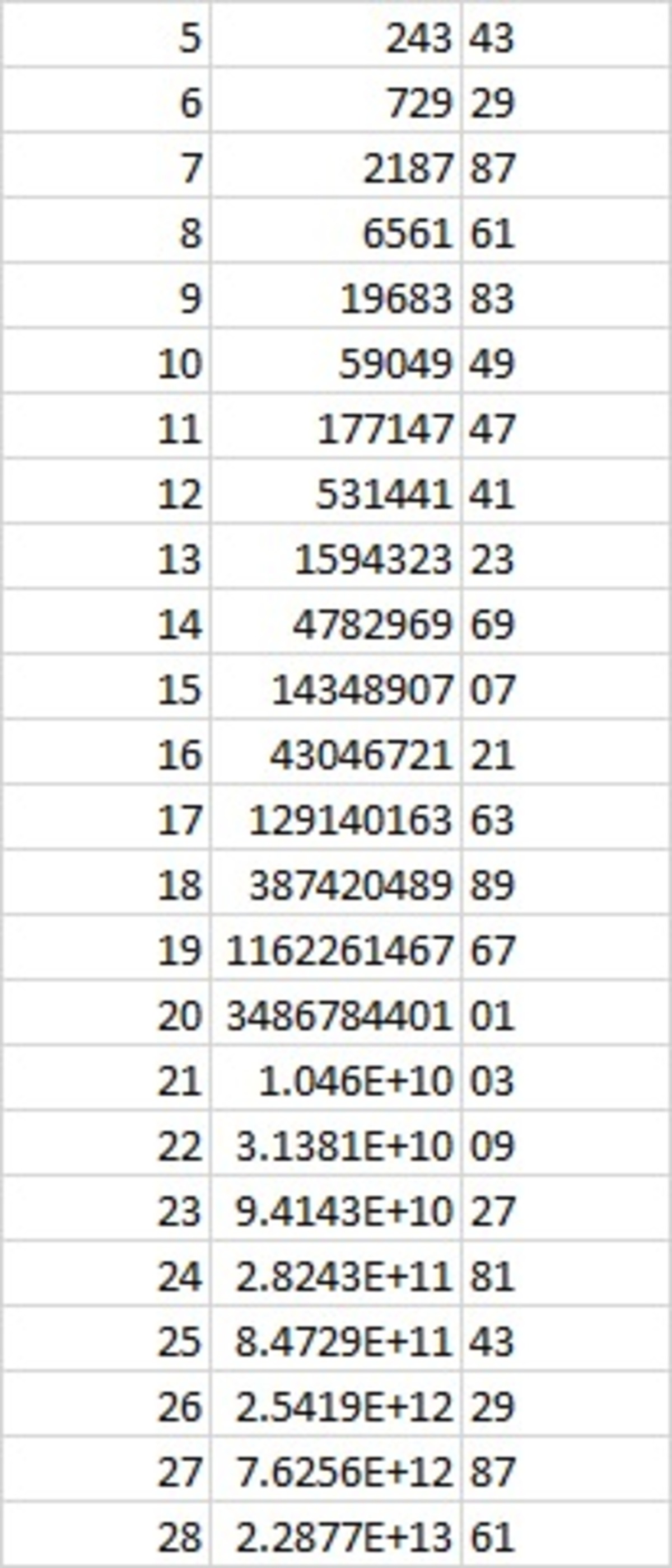This section requires Javascript.
You are seeing this because something didn't load right. We suggest you, (a) try
refreshing the page, (b) enabling javascript if it is disabled on your browser and,
finally, (c)
loading the
non-javascript version of this page
. We're sorry about the hassle.
4 solutions
Please explain your method, I did by taking 3 = 10 - 7 , then by binomial expansion we can say last two terms of expansion will give us the answer... Howw did you consider 01 at the end ? because, remainder when dividing by n digit number can be n digits at most, but here only two digit could be the remainder as we are dividing by 100 or so ?
Log in to reply
I showed that 3 4 0 0 ≡ 1 ( m o d 4 ) , so that 4 divides 3 4 0 0 − 1 . I then showed that 3 4 ≡ 1 ( m o d 5 ) , so that 3 4 = 5 m + 1 ,and hence 3 2 0 = ( 5 m + 1 ) 5 ≡ 1 ( m o d 2 5 ) . Thus 3 4 0 0 ≡ 1 ( m o d 2 5 ) , and so 2 5 divides 3 4 0 0 − 1 . Since both 4 and 2 5 divide 3 4 0 0 − 1 , it follows that 1 0 0 divides 3 4 0 0 − 1 , so that 3 4 0 0 = 1 0 0 k + 1 for some integer k , so that the last two digits of 3 4 0 0 are 0 1 .
By Binomial Expansion
3 4 0 0 ≡ 9 2 0 0 (mod 100) ≡ ( 1 0 − 1 ) 2 0 0 (mod 100) ≡ ( 1 0 2 0 0 − 2 0 0 ⋅ 1 0 1 9 9 + ⋯ − 2 0 0 ⋅ 1 0 + 1 ) (mod 100) ≡ 1 (mod 100)
Therefore, the last two digits of 3 4 0 0 is 0 1 .
By Euler's Theorem
We need to find 3 4 0 0 m o d 1 0 0 . Since 3 and 100 are coprime integers, that is g cd ( 3 , 1 0 0 ) = 1 , we can apply Euler's theorem as follows. Note that the Euler's totient function ϕ ( 1 0 0 ) = 1 0 0 × 2 1 × 5 4 = 4 0 .
3 4 0 0 ≡ 3 4 0 0 m o d ϕ ( 1 0 0 ) (mod 100) ≡ 3 4 0 0 m o d 4 0 (mod 100) ≡ 3 0 (mod 100) ≡ 1 (mod 100)
Therefore, the last two digits of 3 4 0 0 is 0 1 .
Use Euler's theorem
4 0 0 ≡ 0 m o d ϕ ( 1 0 0 ) = 4 0 ⟹ 3 4 0 0 ≡ 3 0 ≡ 1 m o d 1 0 0

3^400 = (3^4)^100 = ( 1 + 80) ^ 100
Expanding (1 + 80) ^ 100 using the binomial theorm
The first few terms are 1 + 100 * 80 + 4450 * 6400 + 161700*512000 + ....
= 8001 + 4450 6400 + 161700 512000 + ....
The last few digits of the third and the fourth terms are 000, 00000. So if the first two terms are added to the other terms, the last two digits will remain
the same as one where the first and the second terms are added ( 01). So the last two digits of 3^400 are 01 , answer choice A.
Youtube Tutorial :
Verified using Excel :

The last two digits of 3^x cycles with a period of 20 powers. So the last two digits of 3^400 = last two digits of 3^20 which is equal to 01.
Since 3 ≡ − 1 ( m o d 4 ) , it follows that 3 2 ≡ 1 ( m o d 4 ) and hence that 3 4 0 0 ≡ 1 ( m o d 4 ) . Also 3 4 ≡ 1 ( m o d 5 ) , and hence 3 2 0 ≡ 1 ( m o d 2 5 ) , so that 3 4 0 0 ≡ 1 ( m o d 2 5 ) . Putting these congruences together we deduce that 3 4 0 0 ≡ 1 ( m o d 1 0 0 ) , making the answer 0 1 .